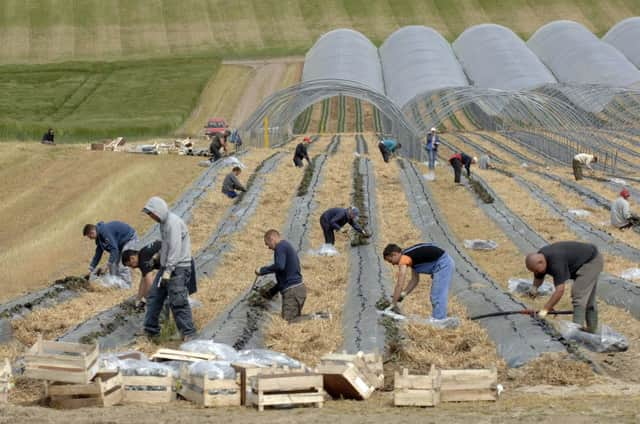UK not easy option for migrant workers


Over the coming months, immigration is going to be a hot topic in the lead-up to the General Election, with the conversation likely to be centred on the EU, human rights and combatting illegal immigration. We are likely to hear comments suggesting that it is easy for migrant workers to come to the UK and that the immigration system is too lenient. However, for many who work in the current system, this is not the case.
One of the most complicated aspects of the immigration system relates to the rules about businesses becoming licensed sponsors to recruit skilled workers from outside the EU. Last year, a survey by the Scottish Council for Development and Industry revealed more than three quarters of Scottish employers believed there was a critical lack of the skills needed for Scottish businesses to grow. One way of remedying this problem is to recruit migrant workers to fill positions where there is a shortage of skilled individuals and many businesses recognise the other benefits that migrant workers can bring to their business, for example by opening new markets for the company. However, contrary to popular belief, it is not cheap and easy to recruit migrant workers, with the Home Office having introduced measures to protect the UK workforce.
Advertisement
Hide AdAdvertisement
Hide AdIn order to be permitted to recruit an international worker, a business must first be approved by the Home Office by holding a sponsor licence. Any business which wishes to benefit from international workers will need to satisfy the Home Office that it has robust systems in place to monitor its employees and ensure they are not breaching the terms of its visas. If a business is considering becoming a licensed sponsor, it needs to give serious consideration to whether or not it has adequate systems to ensure it can meet the obligations set by the Home Office.
A business cannot simply recruit a migrant worker without considering staff already based in the UK. Any vacancy must first be advertised on the Universal Jobmatch website and one other permitted source. In addition, the advert must contain certain required information before a business can recruit someone from outside the EU. This is a difficult and technical process but helps to ensure that international workers are only used where there is a genuine shortage of suitably qualified UK applicants.
Anyone who is sponsored in the UK must also be paid a minimum salary. This is based on the UK average for the particular job and it is reviewed on an annual basis to ensure that international workers do not become a cheap option for businesses. This requirement is a particularly large commitment for small and medium-sized companies, who must consider whether the benefits of recruiting a migrant worker will justify the cost.
Immigration is a complex and often confusing topic for those looking to come to the UK or to benefit from international workers. For many applications, particularly those affecting businesses and those seeking to invest in the UK, the Home Office specifies the evidence that must be submitted with a visa application in order for it to be successful. This is designed to provide applicants with guidance to enable them to submit evidence in a form that will likely be accepted and to put them in the best position for their visas to be issued.
However, this is a complex area and if unprepared it is possible to be caught out by changes in the law. One client recently remarked to me that she was amazed anyone could submit a successful application without the help of a solicitor. In my view, while it is certainly possible for an individual to make a successful application on their own, any application needs to be carefully planned and checked before submission to avoid the risk of refusal and the severe consequences that this can have.
It is not envisaged that these issues will generate headlines in the run-up to the General Election but they are serious issues, particularly in Scotland where there is a drive to increase migration to attract skilled individuals to allow businesses to grow. As long as the immigration rules remain complicated, it will be important for individuals and businesses to plan their steps carefully.
Whilst perhaps not headline material, it is hoped that there will be some room for constructive debate as we head towards election time.
• Stuart McWilliams is an Associate with Morton Fraser www.morton-fraser.com
SEE ALSO